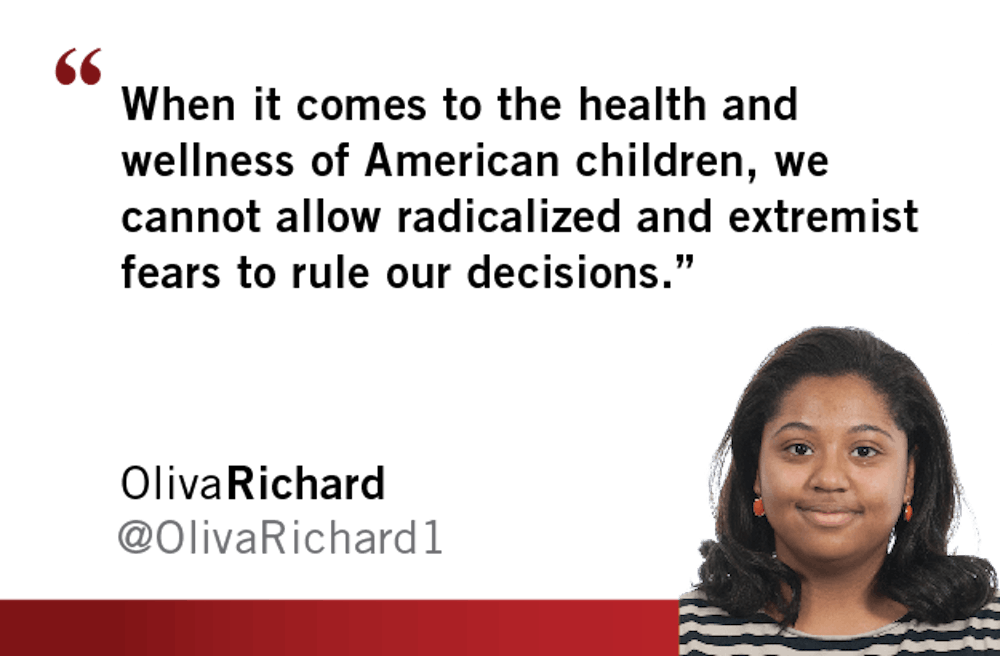The U.S. prides itself on being a mix of global cultures, a breeding ground for opportunity and the trailblazers of individual freedoms, and it has found itself facing a pandemic. It is the very roots by which we have chosen to define ourselves that now loom above our children, a guillotine waiting to asphyxiate. The American cynicism and skepticism that necessitates 100 percent guarantee or our money back has filtered into all factors of American decision. Our adversity to anything scientifically unequivocal has resulted in numerous families failing to immunize their children.
When traveling the path that is health, each family, person and parent happens upon a crossroad, at which point they must determine which how they’ll handle the health of their child: Will they take preemptive measures and vaccinate or will they play Russian roulette, crossing their fingers and hoping the virus just won't hit their child?
In recent weeks, this stalwart resistance has ushered in a black cloud over one of the “Happiest Places on Earth.” As Health officials scramble to contain the recent measles outbreak that is sweeping through Disneyland, one of California’s most popular theme parks, parents and health officials are faced with some serious questions. How do we deal with the current exposure and what are we going to do to prevent further spreading; two questions that could’ve been completely eliminated with the administration of a single shot. For parents to have to worry that a day of fun could end in a trip to the hospital is not only horrifying, but exceptionally preventable.
The simple fact remains that by immunizing your kids, not only are you protecting them from the consequences of these preventable viruses, you’re also protecting others from the virus' spread as well. If you think about it, the only humane way to protect your children is to have them vaccinated. For example, no responsible pet owner would object to having their beloved quadruped immunized for rabies. Why then, would we let our children leave the house even less protected?
Unfortunately, this is not the first time parents' failure to immunize their children has lead to a serious medical crisis. Numerous children die unnecessarily from the common flu. As a result of America’s hyperbolized fear of vaccines, 26 children have already died across the U.S. It is clear that we must re-evaluate our priorities and the effectiveness of our decision-making.
While in a few cases child immunizations of catastrophic outcomes can of course be found, the likelihood that a child will extract autism, brain damage or another life altering illness from their annual flu shot are slim to none. By failing to protect their children, parents are rendering their child susceptible to life-threatening illnesses modern science has thwarted such as the measles, polio, smallpox and influenza.
When it comes to the health and wellness of American children, we cannot allow radicalized and extremist fears to rule our decisions. If you offer your children anything less than you would provide a household pet, is not only irresponsible, it is downright dangerous. We must put our trust in the very science and advancement in which we pride ourselves and immunize our children.
Reach the columnist at oliviarichard123@gmail.com or follow @OliviaRichard1 on Twitter.
Editor’s note: The opinions presented in this column are the author’s and do not imply any endorsement from The State Press or its editors.
Want to join the conversation? Send an email to opiniondesk.statepress@gmail.com. Keep letters under 300 words and be sure to include your university affiliation. Anonymity will not be granted.
Like The State Press on Facebook and follow @statepress on Twitter.





